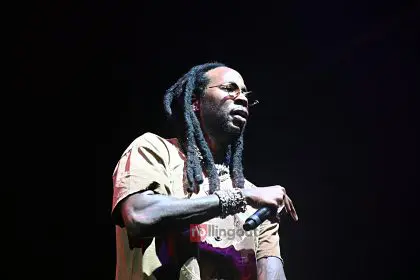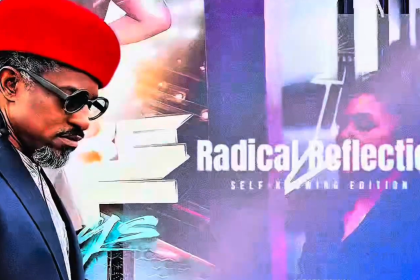Tracy Chapman has revealed why she refuses to stream music in the digital age. Her stance reflects a growing movement among established artists to maintain traditional revenue models in the music industry.
The Grammy-winning singer-songwriter, 61, said she chooses to buy physical copies of albums for the benefit of fellow performers. This decision comes at a time when streaming accounts for more than 84 percent of music industry revenue.
“I only buy music in physical form. Artists get paid when you actually buy a CD or the vinyl. That’s important to me,” she revealed in a rare interview with The New York Times. Studies show that musicians typically earn between $0.003 and $0.005 per stream, compared to significantly higher royalties from physical sales.
Chapman, whose breakout hit “Fast Car” became a timeless classic, also added: “I don’t listen to as much (music) as I used to. It’s a physical commitment of going out into the world and finding things.” Vinyl record sales have seen a remarkable resurgence, growing more than 1,000 percent since 2007.
But she insisted she continues to seek out new music, including tracks from contemporary artists such as Charli XCX and Chappell Roan. This demonstrates Chapman’s ongoing engagement with evolving musical landscapes despite her traditional preferences.
“It’s not music that I would make, but I appreciate that we’re in this moment where there’s a path for artists like that, and they can even have success,” Chapman added. The diversity in today’s music industry has expanded dramatically, with over 100,000 new tracks uploaded to streaming platforms daily.
Chapman‘s comments come as she celebrates the 35th anniversary of her 1988 debut album with a vinyl reissue. Her debut album has sold more than 20 million copies worldwide and earned her three Grammy Awards.
In the interview, the singer also reflected on her songwriting process, explaining she is still writing “story songs.” Chapman’s narrative approach to songwriting has influenced countless artists across multiple genres.
She added while she has been labeled a protest singer, she doesn’t fully accept the label. Chapman’s music has addressed social justice issues throughout her career, with her song “Talkin’ ‘Bout a Revolution” becoming an anthem for various movements.
“I’ve been lucky in that I get to make a living by pursuing a creative endeavor and letting my mind go where it wants,” Chapman went on. Her career spans three decades-plus with eight studio albums and numerous accolades.
The singer also reflected on the characters in her tunes, specifically those in “Fast Car,” clarifying the song was fictional. The track recently experienced a renaissance when country artist Luke Combs covered it in 2023, introducing Chapman’s work to a new generation.
“I was not, at 24, married with a couple kids – not that there’s anything wrong with that – but this is a work of fiction in that regard,” she said about its lyrics. ‘Fast Car‘ peaked at No. 6 on the Billboard Hot 100 in 1988 and has been covered by more than 200 artists since its release.
Chapman also recently made a rare public appearance at the 2024 Grammys, where she performed “Fast Car” alongside Luke Combs. The performance marked her first televised appearance in years and generated more than 10 million views online.
But Chapman, who last toured in 2009, said she has no immediate plans to return to the stage. Her last tour spanned 23 cities across North America and Europe.
“If I were to tour, I would tour for something new, new material. But that would be the thing that would be most interesting to me at this point,” she added. Industry statistics show that touring remains the primary revenue source for most musicians, with top artists earning up to 75 percent of their income from live performances.
Chapman’s principled stance on music consumption reflects broader conversations in the industry about fair compensation for artists. While streaming has democratized access to music, many creators argue the current model undervalues their work significantly, with statistics showing that approximately 90 percent of all streams go to the top 1 percent of artists.
Her continued commitment to physical media also highlights the enduring appeal of tangible music formats in an increasingly digital world, with collectors and audiophiles driving a renaissance in vinyl and even cassette sales over the past decade.












